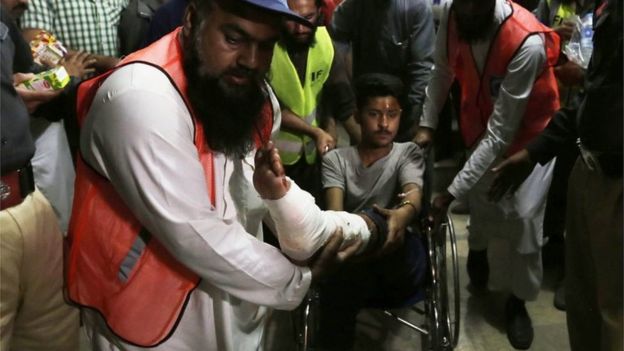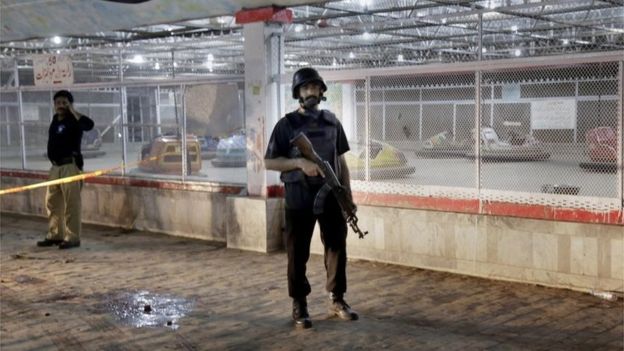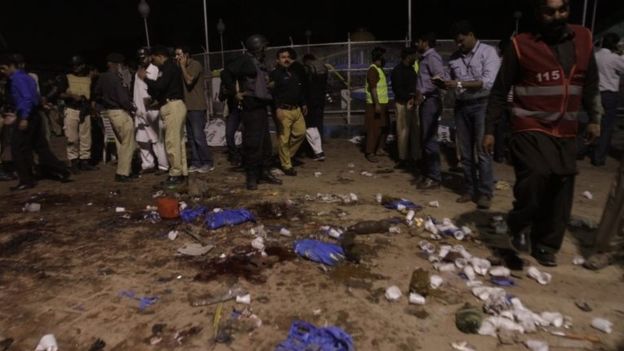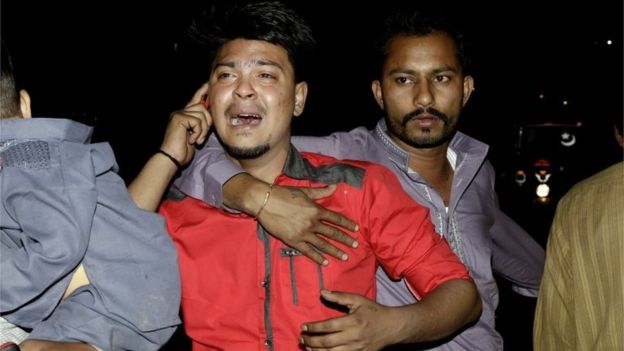Pakistan Taliban faction claims park attack on Lahore Christians
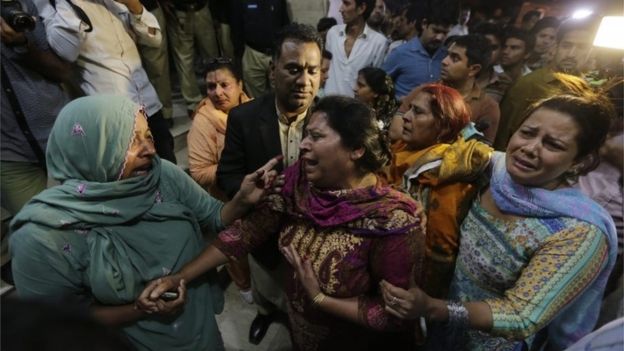
A Taliban splinter group says it carried out a suicide attack on a park in Lahore, Pakistan, which killed more than 70 people, including children.
Jamaat-ul-Ahrar said it had targeted Christians celebrating Easter, though police have said they are still investigating the claim.
There were scenes of carnage as parents searched for children amid the debris.
Pakistan's president condemned the attack, and the regional government has announced three days of mourning.
At least 300 people were injured, with officials saying they expected the death toll to rise.
All major hospitals in the area were put on an emergency footing after the blast, early on Sunday evening.
Soft target
Lahore is one of Pakistan's most liberal and wealthy cities. It is the political powerbase of Prime Minister Nawaz Sharif, and has seen relatively few terror attacks in recent years.
A spokesman for Jamaat-ul-Ahrar, Ehsanullah Ehsan, said the group wanted to send a message to Mr Sharif that they "have entered Lahore", and threatened further attacks.
Jamaat-ul-Ahrar is a breakaway group from Tehrik-e Taliban Pakistan. It has carried out several other attacks on Pakistani civilians and security forces in recent months.
Mr Sharif expressed "grief and sorrow over the sad demise of innocent lives". He has postponed a planned trip to the UK.
The explosion, believed to have been carried out by one suicide bomber, hit the main gate to the Gulshan-e-Iqbal park in the early evening, a short distance from the children's playground.
Officials said the device had been packed with ball bearings.
The popular was more crowded than usual, as Lahore's minority Christians were celebrating Easter at its funfair.
Pakistan's Christians
Estimated to make up about 1.6% of the population, they are the second largest minority in Pakistan after Hindus
Large population in Karachi but also in the Punjab heartland and the cities of Lahore and Faisalabad, and Khyber Pakhtunkhwa province particularly in Peshawar city.
Majority are descendants of low-caste Hindus who converted under the British Raj
Most remain poor menial workers, though there are wealthier Christians who came from Goa and are mainly in Karachi
Attacks, including church and hospital bomb blasts and mob attacks on Christian villages, have increased in recent years; the deadliest was two bombs at a Peshawar church in 2013 which left around 80 dead
One man, who gave his name as Danish, said the park had been so full when he arrived he had not been able to enter.
"We went to a canteen to have something to eat, when there was suddenly a big blast," he told Reuters.
"Everyone went panic, running to all directions. Many of them were blocked at the gate of the park. Dead bodies can be found everywhere."
Hasan Imran, 30, a local resident, told Reuters: "When the blast occurred, the flames were so high they reached above the trees and I saw bodies flying in the air."
One man told Pakistan's Geo TV station he was heading towards a fairground ride with his wife and two children when he heard a huge bang and all four of them were thrown to the floor.
Another man, who did not give his name, told the Associated Press he had taken 20 children to hospital, saying: "I can't explain to you the tragic situation."
Police chief Haider Ashraf said the park had been a soft target for the militants, saying that while Pakistan is "in a warlike situation" there had been no specific alert issued for the park.
Shebaz Sharif, the chief minister of Punjab, later tweeted: "Words cannot describe agony we are in to see our children's blood spilled by cowards."
He said that those who target civilians "do not deserve to be called humans" and that Pakistan would "make sure that your terror infrastructure is dismantled completely".
UN Secretary-General Ban Ki-moon called the attack "appalling", saying the perpetrators should "be brought swiftly to justice".
Pakistan has suffered regular incidents of Taliban-related violence, sectarian strife and criminal gang activity.
Политика конфиденциальности | Правила пользования сайтом
